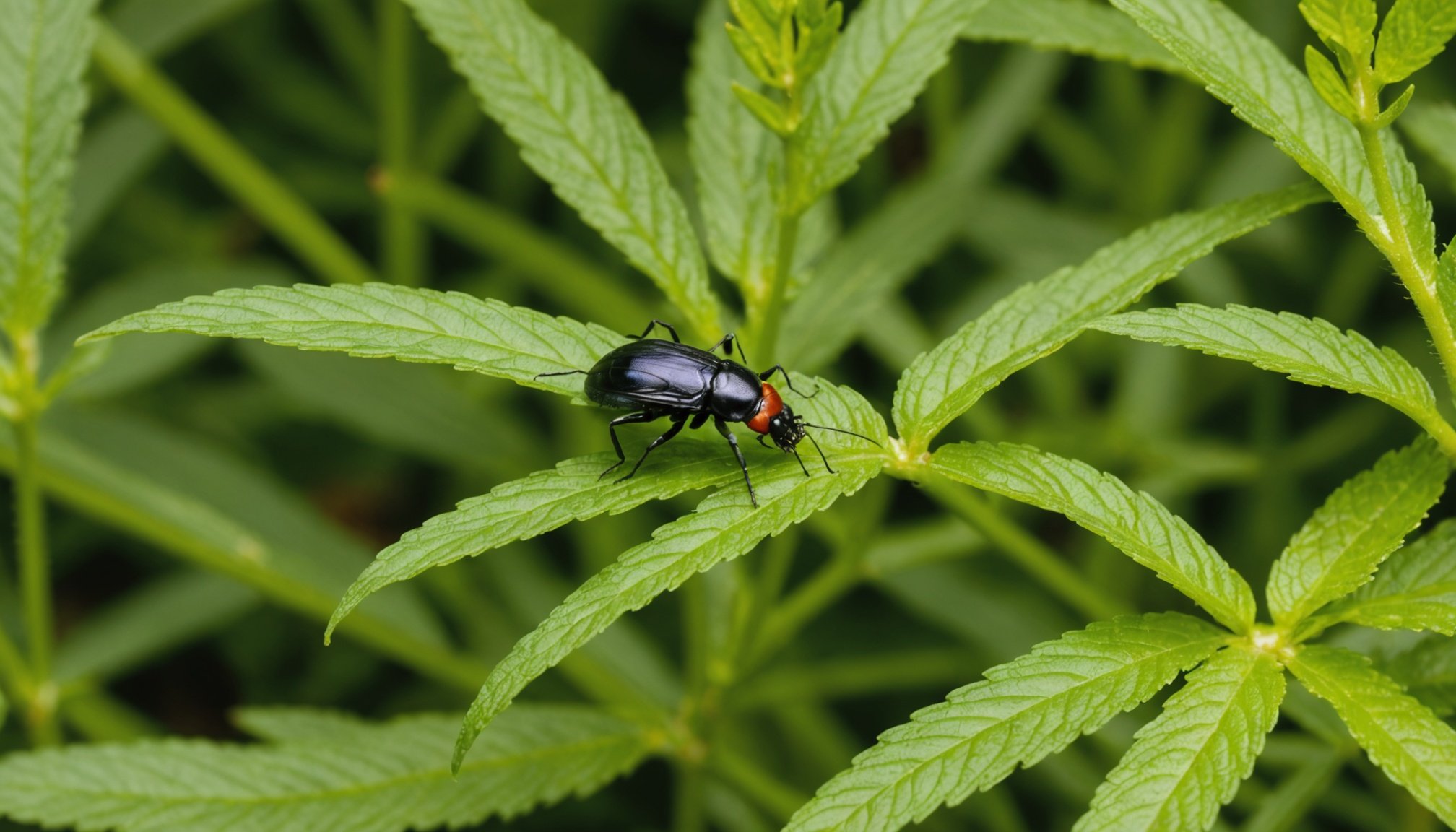Overview of Natural Pest Control
Natural pest control is a strategy that emphasises the use of eco-friendly pest management techniques to manage unwanted garden pests. This method steers clear of synthetic chemicals and promotes a more harmonious approach to gardening. With the growing trend of organic gardening across the UK, the demand for sustainable practices has surged, and natural pest control has become an integral part of this movement.
Importance in Gardening
The significance of natural pest control cannot be overstated. By eliminating the reliance on chemical solutions, it ensures a safer environment for both gardeners and beneficial insects that contribute to a healthy ecosystem. Opting for this method helps maintain soil fertility and ensures that non-target species, like bees and butterflies, are not harmed.
En parallèle : Smart Strategies for Building an Affordable Home Office in Your UK Flat
Benefits Over Chemical Methods
Natural pest control offers numerous advantages over conventional chemical methods. Traditional chemicals often lead to resistant pest strains, requiring ever-stronger formulations. In contrast, nature-based strategies are adaptable, reducing the risk of resistance. Additionally, they safeguard water resources by avoiding harmful runoff that contaminates surrounding ecosystems.
The Trend Towards Organic Gardening
In the UK, the shift towards organic gardening continues to grow in popularity. As consumers become more environmentally conscious, they are increasingly seeking sustainable gardening solutions. This trend underscores an awareness of the broader impacts of gardening practices on biodiversity and ecological balance, positioning natural pest control at the forefront.
Cela peut vous intéresser : Ultimate Guide to Strategically Positioning CO2 Detectors in UK Terraced Homes for Maximum Safety
Common Garden Pests in the UK
Understanding UK garden pests is key for effective management. Common examples include aphids, slugs, and caterpillars. Proper pest identification is crucial to mitigating potential damage.
Aphids are tiny insects that can be green, black, or other colours, depending visibly on the plant species they infest. They’re often found in clusters on new growth. Slugs, however, are soft-bodied molluscs leaving telltale slime trails and irregular holes in leaves. Caterpillars, which are the larvae of butterflies and moths, vary in size and appearance but typically chew through foliage, leaving distinct marks.
Grasping the pest lifecycle is fundamental: each pest undergoes stages that influence its threat level. For instance, aphids multiply rapidly in warm weather, while slugs are most active at night or during damp conditions. Knowing these patterns aids proactive control measures.
Signs of infestation are often specific to the pest. Yellowing leaves, for instance, might suggest aphid presence. Meanwhile, holes in plant leaves can signal slugs or caterpillars. To effectively monitor pest activity, conducting regular garden inspections, especially at critical times throughout the year, is advisable.
By paying close attention to pest lifecycles and symptoms, UK gardeners can better manage their prized plots, ensuring vibrant, healthy gardens.
Effective Natural Pest Control Strategies
Implementing natural pest control strategies can be a sustainable way to manage pests in your garden. By utilizing organic methods and preventive techniques, you can maintain a healthy garden ecosystem without harmful chemicals.
Cultural Controls
Cultural controls focus on preventive techniques that hinder pest development. Crop rotation and diversity are crucial. Changing crop locations disrupts pest life cycles, reducing infestations. Maintaining soil health improves plant vigor, making them less susceptible to pests. Rich, healthy soil encourages beneficial microorganisms, which naturally suppress pest populations. Companion planting is another useful practice. For example, planting marigolds next to tomatoes can deter nematodes and other pests.
Physical Controls
Physical controls involve manually removing or blocking pests. Implementing barriers, like fences or plant rows, can physically stop pests. Hand-picking involves regularly inspecting plants and removing large, visible pests. Simple tools like tweezers or gloves assist in this. Insect netting covers crops, creating a barrier that prevents pest entry while allowing sunlight and rain.
Biological Controls
Introducing beneficial insects is an effective biological control method. Predators like ladybugs and lacewings consume large numbers of garden pests. Nematodes target soil-borne pests, reducing caterpillar and beetle larvae. Fostering a balanced ecosystem by encouraging biodiversity helps maintain this natural control and reduces the likelihood of pest outbreaks significantly.
DIY Natural Pest Control Remedies
Creating your natural pest remedies can be both eco-friendly and effective. Homemade solutions, such as neem oil or a simple soap solution, offer excellent alternatives to chemical-based insecticides. Neem oil, derived from the seeds of the neem tree, is a noteworthy natural insecticide. To make this solution, mix two teaspoons of neem oil with one teaspoon of mild liquid soap and a litre of water. Spray it directly onto plants to ward off pests like aphids and mealybugs.
Essential oils are another invaluable tool for pest control. Oils like peppermint, eucalyptus, or lavender not only repel insects but leave your space smelling fresh. A few drops added to water in a spray bottle can deter ants and spiders. The benefits of homemade solutions are notable— they are eco-friendly, cost-effective, and safe for both humans and pets.
Unlike store-bought products, natural remedies typically contain no harsh chemicals, reducing the risk of chemical residues in your home. They allow for considerable flexibility, enabling adjustments to suit specific pest problems. While some might argue about potency, the strategic application of these remedies can offer impressive results with minimal environmental impact.
Case Studies and User Experiences
Exploring natural pest control experiences offers insights into practical applications and effectiveness in real-world settings. In the UK, many gardens have successfully implemented natural pest control methods, showcasing techniques that do not rely on chemical pesticides. This approach has gained traction among gardeners seeking eco-friendly alternatives to maintain their plants’ health.
User testimonials provide a wealth of knowledge and highlight effective strategies. One notable success story comes from a community garden in Yorkshire, where introducing beneficial insects significantly reduced aphid populations. This strategy emphasises the importance of embracing biodiversity and understanding ecosystem balance.
Similar user testimonials across the UK reveal positive outcomes through the use of companion planting. For instance, strategically placing marigolds alongside vegetables has deterred nematodes effectively, proving that plant combinations can combat pests naturally.
The lessons learned from community gardening initiatives emphasise adaptability and experimentation. Engaging in natural pest control experiences enables gardeners to share insights and adjust their approaches based on observed outcomes. This collaborative learning environment fosters creativity and innovation, leading to more successful methods in various climatic conditions.
Implementing these experiences allows for the development of robust strategies, such as integrating predator-friendly habitats and utilising reflective mulch, which not only controls pests but also supports a thriving garden ecosystem.
Resources and Recommended Products
Exploring eco-friendly products for your garden can feel like discovering a whole new world. A variety of natural pest control products are available today. These include neem oil, diatomaceous earth, and beneficial nematodes. Each product provides a different solution, whether by deterring pests or enriching soil with organic gardening resources.
To find these, UK-based gardeners can consider browsing local garden centres which often stock eco-friendly and organic products. Some online stores specialize in eco-conscious gardening, offering a wider selection that might not be available locally. Collaborating with nearby community organic gardening clubs can also provide insight into trusted local suppliers.
It is also valuable to tap into the wisdom of local organisations. Groups like the Soil Association and the Organic Growers Alliance offer exceptional resources. Membership to these organisations not only enriches your knowledge but also connects you to a network of likeminded gardeners. Many offer workshops and seminars, bringing you the latest in organic gardening practices.
Consider reaching out locally for expertise and supplies. Whether through personal connections or dedicated organisations, the wealth of knowledge and gardening advice available can significantly enhance your gardening experience. Embracing this community-focused approach can be as rewarding as the gardening itself.











